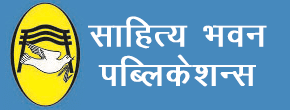In the present complex business world, management accounting has become an integral part and useful tool of a management system. In fact, management accounting represents a happy blending of two older professions of ‘Management & Cost’ and ‘Accounting’, which leads to the success of a business concern through accounting control and managerial efficiency.
Salient features of the Management & Cost Accounting book:
- The subject-matter has been arranged and systematized strictly according to the course prescribed for B.Com. (Hons.) The third year of the yearwise syllabus.
- The language and style of presentation are very simple and the subject-matter has been divided into various headings and sub-headings so as to give flow in studying this numerical subject.
- Both theoretical and numerical aspects of the subject have been given due importance.
- The numerical illustrations have been carefully graded with supporting theoretical background. At many places, explanatory notes have also been given to clarify the working of solution.
- Numerical illustrations and questions have been arranged in a systematic and scientific sequence from simple to complex.
- Illustrations and questions both have been arranged in an identical sequence so that students can easily solve the questions after understanding the illustration in the same order.
- In the selection of illustrations and questions priority has been given to university examination papers so that students may make practice according to that standard.
- Short answer and objective type questions (Theoretical & Numerical) have also been incorporated according to a new examination pattern.
- Standard but simple formulae have been used in different chapters and at the end of each chapter, all formulae relevant to that chapter have been given at one place.
- An important feature of a revised edition of this book is that all relevant chapters have been re-drafted as per revised format of Balance Sheet and Statement of Profit & Loss given in Schedule III of the Companies Act, 2013.
Management & Cost Accounting Syllabus For B.Com. III Year of Awadhesh Pratap Singh University Rewa, Barkatullah University Bhopal, Rani Durgavati Vishwavidyalaya Jabalpur, Vikram University Ujjain, Dr. Harisingh Gour University Sagar
Unit – I Management Accounting: Meaning, Nature, Scope, Functions, and Role of Management Accounting in Decision Making, Management Accounting vs. Financial Accounting and Cost Accounting. Tools and techniques of Management Accounting. Financial Statement: Meaning, Importance, and Limitations, Objectives, and methods of Financial Statements Analysis,
Unit – II Ratio Analysis, Classification of Ratios – Profitability Ratios, Turnover Ratios, and Financial Ratios, Advantages of Ratio Analysis, Limitations of Accounting Ratios, Trend Analysis, Fund Flow Statement, Cash Flow Statement (As per Indian Accounting Standard-3).
Unit – III Process Cost – Concepts, Types, and Methods, Standard Cost – Variance Analysis, Concept, and Types.
Unit – IV Absorption and Marginal Costing: Marginal and Differential Costing as a Tool for Decision Making-Make or Buy, Change of Product Mix, Pricing, Break Even Analysis, Exploring New Markets, Shutdown Decisions.
Unit – V Budgetary Control: Meaning of Budget and Budgetary Control: Objectives, Merits, and Limitations. Types of Budget: Cash Budget and Flexible Budget. Concept of Management Audit, Responsibility Accounting. Management Reports, Types of Management Reports and Quality of Goods Report.
Management & Cost Accounting Book Contents
- Management Accounting (An Introduction)
- Financial Statements
- Analysis and Interpretation of Financial Statements
- Ratio Analysis
- Funds Flow Statement
- Cash Flow Statement (As Per Accounting Standard–3)
- Absorption Costing and Marginal Costing
- Marginal Costing (As A Tool For Decision Making)
- Differential Costing
- Cost-Volume-Profit Analysis (Break-Even Point)
- Budget and Budgeting
- Budgetary Control
- Fixed and Flexible Budgeting
- Cash Budget
- Sales And Production Budget
- Control Ratios
- Zero Base Budgeting
- Responsibility Accounting
- Performance Budgeting
- Standard Costing
- Variance Analysis (Material & Labour Variance)
- Overhead (Two-Way) Variance Analysis
- Management Audit
- Management Reports – Types and Quality of A Good Report













![व्यावसायिक सांख्यिकी (Business Statistics) [for T.M. Bhagalpur University and Sido Kanhu University]](https://i0.wp.com/sahityabhawanpublications.com/wp-content/uploads/2017/10/2156-Business-Statistics-For-BCom-Hons-IIIrd-Year-of-Tilka-Manjhi-Bhagalpur-University-Munger-University-Hindi-Paperback-Dr-SM-Shukla-Dr-Shiv-Pujan-Sahai.jpg?resize=247%2C300&ssl=1)


![Business Statistics [for B.H.U. Varanashi]](https://i0.wp.com/sahityabhawanpublications.com/wp-content/uploads/2017/10/2363-Business-Statistics.jpg?resize=245%2C300&ssl=1)
![Practical Problems in Business Statistics [for Various Universities]](https://i0.wp.com/sahityabhawanpublications.com/wp-content/uploads/2017/10/2643-Practical-Problems-in-Business-Statistics.jpg?resize=245%2C300&ssl=1)
Gagan Singh –
nice